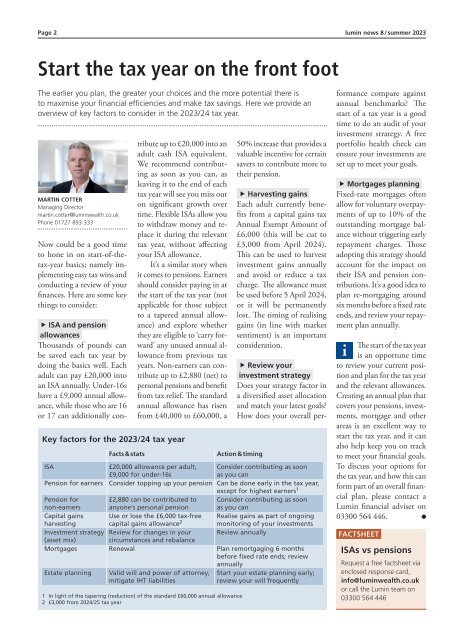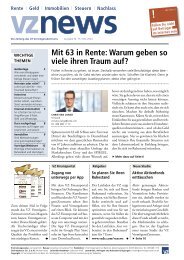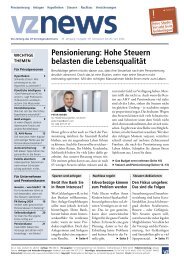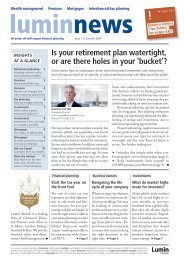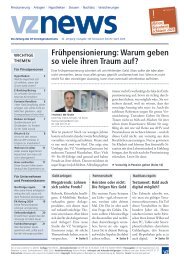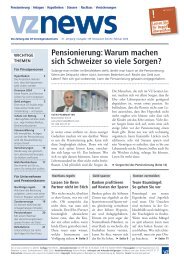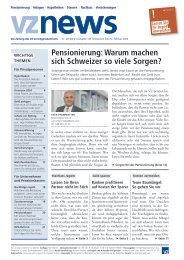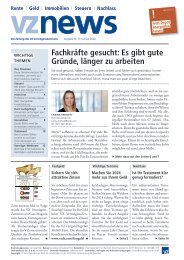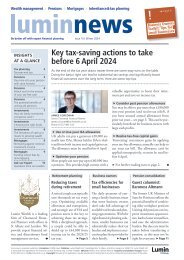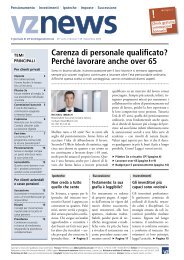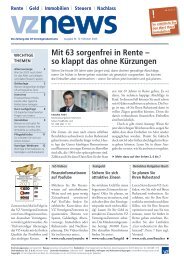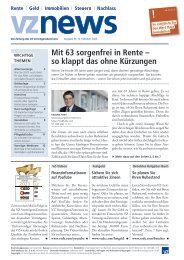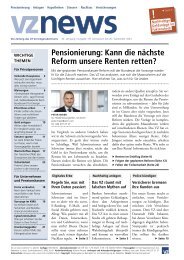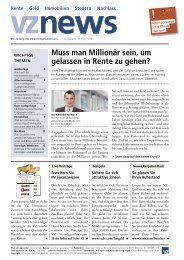lumin news Issue 8 / Summer 2023
Create successful ePaper yourself
Turn your PDF publications into a flip-book with our unique Google optimized e-Paper software.
Page 2 <strong>lumin</strong> <strong>news</strong> 8 / summer <strong>2023</strong><br />
Start the tax year on the front foot<br />
The earlier you plan, the greater your choices and the more potential there is<br />
to maximise your financial efficiencies and make tax savings. Here we provide an<br />
overview of key factors to consider in the <strong>2023</strong>/ 24 tax year.<br />
MARTIN COTTER<br />
Managing Director<br />
martin.cotter@<strong>lumin</strong>wealth.co.uk<br />
Phone 01727 893 333<br />
Now could be a good time<br />
to hone in on start-of-thetax-year<br />
basics; namely implementing<br />
easy tax wins and<br />
conducting a review of your<br />
finances. Here are some key<br />
things to consider:<br />
ISA and pension<br />
allowances<br />
Thousands of pounds can<br />
be saved each tax year by<br />
doing the basics well. Each<br />
adult can pay £20,000 into<br />
an ISA annually. Under-16s<br />
have a £9,000 annual allowance,<br />
while those who are 16<br />
or 17 can additionally contribute<br />
up to £20,000 into an<br />
adult cash ISA equivalent.<br />
We recommend contributing<br />
as soon as you can, as<br />
leaving it to the end of each<br />
tax year will see you miss out<br />
on significant growth over<br />
time. Flexible ISAs allow you<br />
to withdraw money and replace<br />
it during the relevant<br />
tax year, without affecting<br />
your ISA allowance.<br />
It’s a similar story when<br />
it comes to pensions. Earners<br />
should consider paying in at<br />
the start of the tax year (not<br />
applicable for those subject<br />
to a tapered annual allowance)<br />
and explore whether<br />
they are eligible to ‘carry forward’<br />
any unused annual allowance<br />
from previous tax<br />
years. Non-earners can contribute<br />
up to £2,880 (net) to<br />
personal pensions and benefit<br />
from tax relief. The standard<br />
annual allowance has risen<br />
from £40,000 to £60,000, a<br />
Key factors for the <strong>2023</strong>/24 tax year<br />
Facts & stats<br />
50% increase that provides a<br />
valuable incentive for certain<br />
savers to contribute more to<br />
their pension.<br />
Harvesting gains<br />
Each adult currently benefits<br />
from a capital gains tax<br />
Annual Exempt Amount of<br />
£6,000 (this will be cut to<br />
£3,000 from April 2024).<br />
This can be used to harvest<br />
investment gains annually<br />
and avoid or reduce a tax<br />
charge. The allowance must<br />
be used before 5 April 2024,<br />
or it will be permanently<br />
lost. The timing of realising<br />
gains (in line with market<br />
sentiment) is an important<br />
consideration.<br />
Action & timing<br />
ISA<br />
£20,000 allowance per adult;<br />
£9,000 for under-16s<br />
Consider contributing as soon<br />
as you can<br />
Pension for earners Consider topping up your pension Can be done early in the tax year,<br />
except for highest earners 1<br />
Pension for<br />
non-earners<br />
£2,880 can be contributed to<br />
anyone’s personal pension<br />
Consider contributing as soon<br />
as you can<br />
Capital gains<br />
harvesting<br />
Use or lose the £6,000 tax-free<br />
capital gains allowance 2<br />
Realise gains as part of ongoing<br />
monitoring of your investments<br />
Investment strategy Review for changes in your Review annually<br />
(asset mix)<br />
circumstances and rebalance<br />
Mortgages Renewal Plan remortgaging 6 months<br />
before fixed rate ends; review<br />
annually<br />
Estate planning Valid will and power of attorney;<br />
mitigate IHT liabilities<br />
Start your estate planning early;<br />
review your will frequently<br />
1 In light of the tapering (reduction) of the standard £60,000 annual allowance<br />
2 £3,000 from 2024 / 25 tax year<br />
Review your<br />
investment strategy<br />
Does your strategy factor in<br />
a diversified asset allocation<br />
and match your latest goals?<br />
How does your overall performance<br />
compare against<br />
annual benchmarks? The<br />
start of a tax year is a good<br />
time to do an audit of your<br />
investment strategy. A free<br />
portfolio health check can<br />
ensure your investments are<br />
set up to meet your goals.<br />
Mortgages planning<br />
Fixed-rate mortgages often<br />
allow for voluntary overpayments<br />
of up to 10% of the<br />
outstanding mortgage balance<br />
without triggering early<br />
repayment charges. Those<br />
adopting this strategy should<br />
account for the impact on<br />
their ISA and pension contributions.<br />
It’s a good idea to<br />
plan re-mortgaging around<br />
six months before a fixed rate<br />
ends, and review your repayment<br />
plan annually.<br />
The start of the tax year<br />
is an opportune time<br />
to review your current position<br />
and plan for the tax year<br />
and the relevant allowances.<br />
Creating an annual plan that<br />
covers your pensions, investments,<br />
mortgage and other<br />
areas is an excellent way to<br />
start the tax year, and it can<br />
also help keep you on track<br />
to meet your financial goals.<br />
To discuss your options for<br />
the tax year, and how this can<br />
form part of an overall financial<br />
plan, please contact a<br />
Lumin financial adviser on<br />
03300 564 446.<br />
FACTSHEET<br />
ISAs vs pensions<br />
Request a free factsheet via<br />
enclosed response card,<br />
info@<strong>lumin</strong>wealth.co.uk<br />
or call the Lumin team on<br />
03300 564 446


